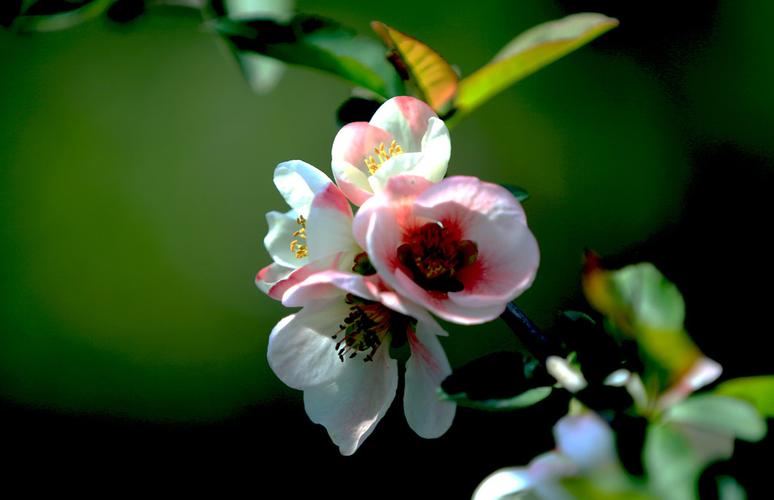您现在的位置是: 首页 > 成语分享 成语分享
bygone-Bygone Serenity
tamoadmin 2024-11-05 人已围观
简介7:30英语有两种说法:half past seven和seven thirty.1、half英 [hɑ:f] 美 [h?f]adj.一半的,半个的n.半;一半;(啤酒等饮料的)半品脱;(比赛、音乐会等的)半场adv.一半;部份地She?was?half?Italian?and?half?English.?她是半意大利半英国血统。2、past英 [pɑ:st] 美 [p?st]adj.过去的,

7:30英语有两种说法:half past seven和seven thirty.
1、half
英 [hɑ:f] 美 [h?f]
adj.一半的,半个的
n.半;一半;(啤酒等饮料的)半品脱;(比赛、音乐会等的)半场
adv.一半;部份地
She?was?half?Italian?and?half?English.?
她是半意大利半英国血统。
2、past
英 [pɑ:st] 美 [p?st]
adj.过去的,以前的;结束的;前任的
n.往事;过去,过往;[语]过去时
prep.超过,超出;远于;越过
adv.经过,超过
It's?ten?past?eleven .
现在是11点过10分。
3、thirty
英 [?θ?:ti] 美 [?θ?:rti]
n.三十;三十个;三十年代;三十的记号
adj.三十的,三十个的
num.三十;三十个
By?this?time?he?was?thirty .
到那时他30岁了。
扩展资料half的同义词为:moiety;past的同义词为:bygone.
1、moiety
英 ['m?t?] 美 ['m?t?]
n.一半;(两个组成部分中的一)部分
复数: moieties
The?moiety?can?provide?covalent?interaction?with?sugars.?
其含有硼酸部分,可以与醣类分子以共价键键结。
2、bygone
英 [?ba?g?n] 美 [?ba?g?:n]
adj.过去的;以往的;很久以前的;旧式的
n.往事;过去的(不愉快的)事
She?looked?up?some?friends?of?bygone?years.?
她去看望了一些过去的老朋友。
有着令人回味的往事 .英语翻译过去式
过去的就让它过去吧。 一般是在一个人经历一件悲痛的事,又无法忘怀时(例如失恋),作为他的好朋友的我就会说:let bygone be bygone.life will move on.
英文句子翻译 (Out of America's fascination)
There were bygone things for us to think of/reflect on.
“过去的”应该翻译成bygone,例如昔日应翻译为bygone days。回味某事可以说出:think of sth.;reflects on sth.;aftertaste sth.。
更多有关回味的例句:
①他细细回味这些相互对立的经历。
He reflects on these conflicting memories.
②第四步就是回味。
And the fourth step is to feel the aftertaste.
③这些照片让我回味我们一起度过的快乐的时光。
These photos make me think of the happy days we spent together.
朱自清散文《匆匆》英译
market
n.市场,集市,股市;行情,销路 vt.销售
bygone
a.过去的,昔日的
fixture
n.[ pl.]固定装置;固定在某位置的人(或物)
overstuffed
vbl.装填过度(涂油过多);adj.填塞很多的(涂油过多,涂油过多的)
bathtub
n.澡盆(浴缸,机下浴缸形突出物)
chaise
n. 轻车马
lounge
n. 闲逛,休闲室,长沙发
v. 闲荡,懒洋洋地躺卧
bring back
vt. 带回来(使记起,使恢复,吐出)
A market for bygone styles of furniture and fixtures that is bringing back the chaise lounge, the overstuffed sofa, and the claw-footed bathtub has grown out of America's fascination.
翻译:
昔日那些可以使我们记起轻马车式的长沙发、鼓囊囊的沙发和爪足浴缸的那些家具和设备的风格的集市已经成长超出了美国的魅力之外。
bygone days是什么意思
匆匆 (朱自清)
燕子去了,有再来的时候;杨柳枯了,有再青的时候;桃花谢了,有再开的时候。但是,聪明的,你告诉我,我们的日子为什么一去不复返呢?——是有人偷了他们吧:那是谁?又藏在何处呢?是他们自己逃走了吧:现在又到了哪里呢?
我不知道他们给了我多少日子;但我的手确乎是渐渐空虚了。在默默里算着,八千多日子已经从我手中溜去;像针尖上一滴水滴在大海里,我的日子滴在时间的流里,没有声音,也没有影子。我不禁汗涔涔而泪潸潸了。
去的尽管去了,来的尽管来着;去来的中间,又怎样地匆匆呢?早上我起来的时候,小屋里射进两三方斜斜的太阳。太阳他有脚啊,轻轻悄悄地挪移了;我也茫茫然跟着旋转。于是——洗手的时候,日子从水盆里过去;吃饭的时候,日子从饭碗里过去;默默时,便从凝然的双眼前过去。我觉察他去的匆匆了,伸出手遮挽时,他又从遮挽着的手边过去,天黑时,我躺在床上,他便伶伶俐俐地从我身上跨过,从我脚边飞去了。等我睁开眼和太阳再见,这算又溜走了一日。我掩着面叹息。但是新来的日子的影儿又开始在叹息里闪过了。
在逃去如飞的日子里,在千门万户的世界里的我能做些什么呢?只有徘徊罢了,只有匆匆罢了;在八千多日的匆匆里,除徘徊外,又剩些什么呢?过去的日子如轻烟,被微风吹散了,如薄雾,被初阳蒸融了;我留着些什么痕迹呢?我何曾留着像游丝样的痕迹呢?我赤裸裸来到这世界,转眼间也将赤裸裸的回去罢?但不能平的,为什么偏要白白走这一遭啊?
你聪明的,告诉我,我们的日子为什么一去不复返呢?
一九二二年三月二十八日。
Rush (translated by Zhu Chunshen)朱纯深
Swallows may have gone, but there is a time of return; willow trees may have died back, but there is a time of regreening; peach blossoms may have fallen, but they will bloom again. Now, you the wise, tell me, why should our days leave us, never to return? — If they had been stolen by someone, who could it be? Where could he hide then? If they had made the escape themselves, then where could they stay at the moment?
I do not know how many days I have been given to spend, but I do feel my hands are getting empty. Taking stock silently, I find that more than eight thousand days has already slid away from me. Like a drop of water from the point of a needle disappearing into the ocean, my days are dripping into the stream of time, soundless, traceless. Already sweat is starting on my forehead, and tears welling up in my eyes.
Those that have gone have gone for good, those to come keep coming; yet in between, how swift is the shift, in such a rush? When I get up in the morning, the slanting sun marks its presence in my small room in two or three oblongs. The sun has feet, look, he is treading on, lightly and furtively; and I am caught, blankly, in his revolution. Thus — the day flows away through the sink when I wash my hands, wears off in the bowl when I eat my meal, passes away before my day-dreaming gaze as I reflect in silence. I can feel his haste now, so I reach out my hands to hold him back, but he keeps flowing past my withholding hands. In the evening, as I lie in bed, he strides over my body, glides past my feet, in his agile way. The moment I open my eyes and meet the sun again, one whole day has gone. I bury my face in my hands and heave a sigh. But the new day begins to flash past in the sigh.
What can I do, in this bustling world, with my days flying in their escape? Nothing but to hesitate, to rush. What have I been doing in that eight-thousand-day rush, apart from hesitating? Those bygone days have been dispersed as smoke by a light wind, or evaporated as mist by the morning sun. What traces have I left behind me? Have I ever left behind any gossamer traces at all? I have come to this world, stark-naked; am I to go back, in a blink, in the same stark-nakedness? It is not fair though: why should I have made such a trip for nothing!
You the wise, tell me, why should our days leave us, never to return?
28 March, 1922
Transient Days (translated by Zhang Peiji)张培基
If swallows go away, they will come back again. If willows wither, they will turn green again. If peach blossoms fade, they will flower again. But, tell me, you the wise, why should our days go by never to return? Perhaps they have been stolen by someone. But who could it be and where could he hide them? Perhaps they have just run away by themselves. But where could they be at the present moment?
I don't know how many days I am entitled to altogether, but my quota of them is undoubtedly wearing away. Counting up silently, I find that more than 8,000 days have already slipped away through my fingers. Like a drop of water falling off a needle point into the ocean, my days are quietly dripping into the stream of time without leaving a trace. At the thought of this, sweat oozes from my forehead and tears trickle down my cheeks.
What is gone is gone, what is to come keeps coming. How swift is the transition in between! When I get up in the morning, the slanting sun casts two or three squarish patches of light into my small room. The sun has feet too, edging away softly and stealthily. And, without knowing it, I am already caught in its revolution .Thus the day flows away through the sink when I wash my hands; vanishes in the rice bowl when I have my meal; passes away quietly before the fixed gaze of my eyes when I am lost in reverie. Aware of its fleeting presence, I reach out for it only to find it brushing past my out-stretched hands. In the evening, when I lie on my bed, it nimbly strides over my body and flits past my feet. By the time when I open my eyes to meet the sun again, another day is already gone. I heave a sign, my head buried in my hands. But, in the midst of my sighs, a new day is flashing past.
Living in this world with its fleeting days and teeming millions, what can I do but waver and wander and live a transient life? What have I been doing during the 8,000 fleeting days except wavering and wandering? The bygone days, like wisps of smoke, have been dispersed by gentle winds, and, like thin mists, have been evaporated by the rising sun. What traces have I left behind? No, nothing, not even gossamer-like traces. I have come to this world stark naked, and in the twinkling of an eye, I am to go to back as stark naked as ever. However, I am taking it very much to heart: why should I be made to pass through this world for nothing at all?
O you the wise, would you tell me please: why should our days go by never to return?
Days Gone By (translated by Zhang Mengjing)张梦井
When the swallows have gone, there is still time to return; when the poplar and willow trees have become withered, there is still time to see green; when the peach flowers have already faded, there is still time to blossom. But please tell me, the genius, why then have my days gone and never returned? If some people have stolen them, then who are they? And where are they hidden? If they have escaped by themselves, then where are they now?
I don't know how many days I have been given, but the in my hands are becoming numbered. Counting silently, eight thousand days have slipped by. Just like water drops a pinpoint dripping slowly into the vast ocean, my days been dripping into the river of time, quietly and invisibly. I can’t help dripping with sweat and weeping many tears.
Although the goings have gone and the comings are constantly coming, how hurried is the time between? When I get up in the morning, I see two or three ribbons of light streaming into my room. The sun also has feet; it moves away on tiptoe and I follow it aimlessly. When I wash my hands, my days wash off into my basin; when I am eating, the days vanish from my bowl; and when I am sitting silently, my days pass by my gazing eyes. When I feel them go away so hurriedly, I reach out my hands only to hold them back before they are beyond my grasp. When it is dark, I lie upon my bed and watch days cleverly jump over my body or fly away from my feet. When I open my eyes to meet the sun again, another day has gone by. I cover my face and sigh, but the spark of a new day begins to flash away in my breath.
In these swiftly escaping days, what can I do in this world amongst thousands of households? I can do nothing but hesitate and hurry. In these over eight thousand hurried days, what has been left to me besides hesitation? The past days like light smoke are blown away with the breeze or like a thin layer of mist evaporate with the morning sun. And what mark have I left in the world? When have I ever left a mark as tiny as a hairspring? I came to this world naked, soon I’ll leave here naked too. But, it's unfair to me. . . why did I come to this world for nothing?
You, the genius, please tell me why our days have gone by and have never returned?
bygone ['bai,g?:n]
基本翻译
n. 过去的事
a. 过去的
网络释义
bygone:往事|过去的事|过去的,逝去的 过去的,逝去的
Ode to Bygone Days:思旧赋
When Love Is Bygone:当爱已成往事
bygone days:过去的日子









